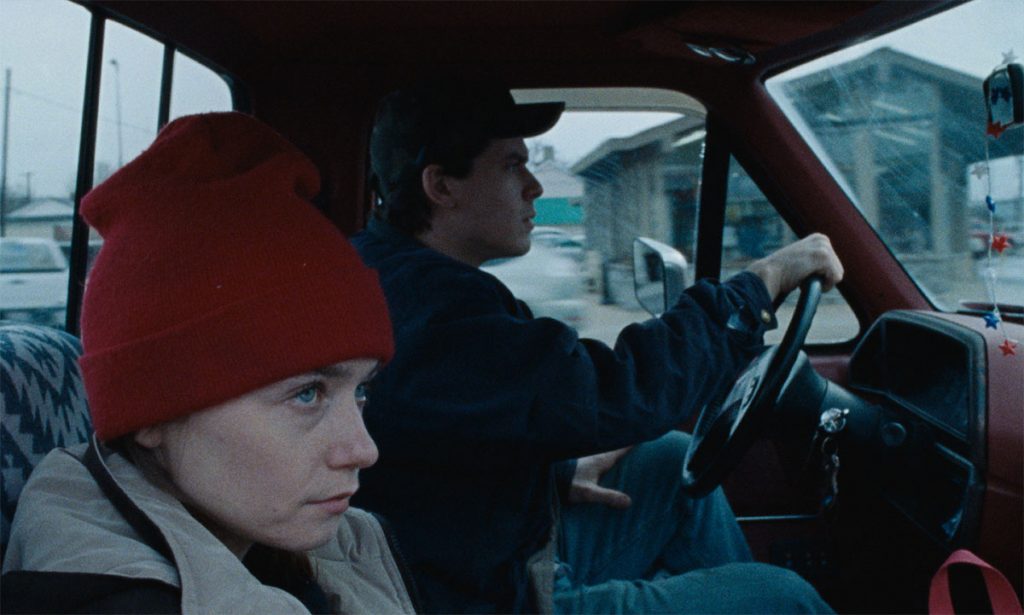Social-realist drama Holler tackles weighty themes with an irony and assuredness from debut feature director Nicole Riegel, but lacks in any significant spark.
The grey grit of a social realist drama about living on the poverty line is somewhat of a staple in independent cinema, and its popularity increases as the disparity of wealth trends in the same direction. Nicole Riegel’s Holler focuses on the experience of living below the poverty line in Jackson, Southern Ohio, USA, and the resilience it takes to claw a way out and on to ‘better’ things, as well as just survive day-to-day.
Ruth (Jessica Barden) is too busy thinking about the eviction notice on her front door, lack of access to running water and scarcity of money for food, as well as her incarcerated mum and over-worked brother, to fully contemplate the celebratory nature of graduating high school. But when her brother’s sneaky sending of her college application results in an acceptance letter, Ruth finds herself embroiled in a dangerous scrap-metal scheme in order to pay her own way to further education.
There’s an irony in the central thematic thread of Riegel’s film, in that Ruth is tearing down the ruins of an industry that once kept families like hers afloat in order to remain afloat herself. A radio broadcast featuring Trump promising “jobs, jobs, jobs” to American citizens is played before the workers of a heavily automated factory contemplate the potential buyout of their employer by businesses overseas; an employer that provides one of the only prosperous opportunities in town. It’s a tough everyday existence for those living on and below the poverty line, and Riegel’s script doesn’t shy away from it. Ruth and her brother Blaze (Gus Halper) see little option but to take work stealing scrap metal from closed down factories, which then gets sold off to foreign companies, in order to save money for Ruth’s college.

They’re gutting the ruins of an industrial town’s former heart and soul to provide Ruth an opportunity; one that is consistently undervalued by everyone in her life outside of Blaze. There’s repeated sentiments that college ‘isn’t for everyone’, that there’s more to learn from life than a book, that student loan debts will devastate people like Ruth. It’s an effective – if on-the-nose – way of emphasising the oppressive nature of living in these situations: it takes a lot of work and sacrifice just to get by day-to-day, never mind pursue a college career. And it’s work and sacrifice that might not pay off.
Holler is mostly going for gritty realism, but it teeters on the edge of melodrama at times that can make the 90 minute runtime drag a little. While its central story is an important, relatable and affecting one, it’s not necessarily doing anything that other dramas of a similar ilk don’t. Barden’s confident central performance, and Riegel’s assured direction – in her debut feature – give warmth and depth to a familiar-feeling story that contributes to an important societal conversation, but lacks significant sparks that would make it particularly memorable.
Holler opened in select US theaters and on Demand/Digital on Friday, June 11, 2021.

